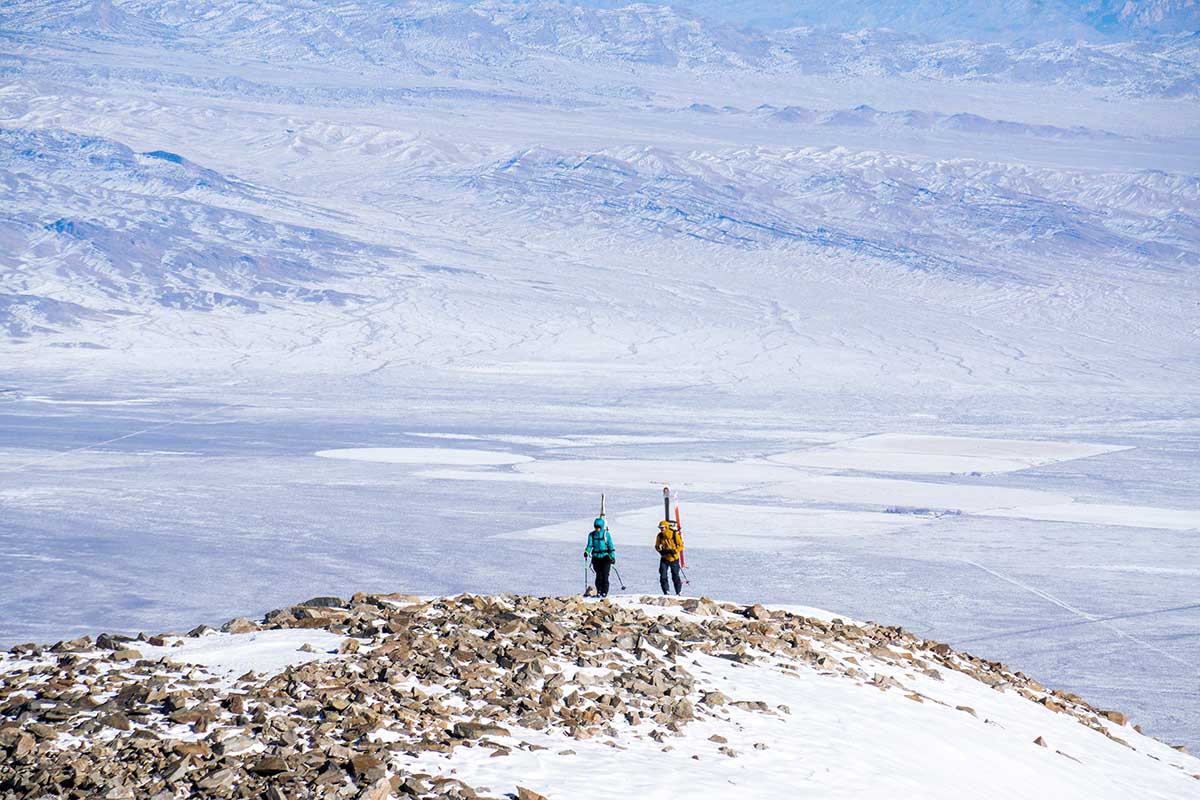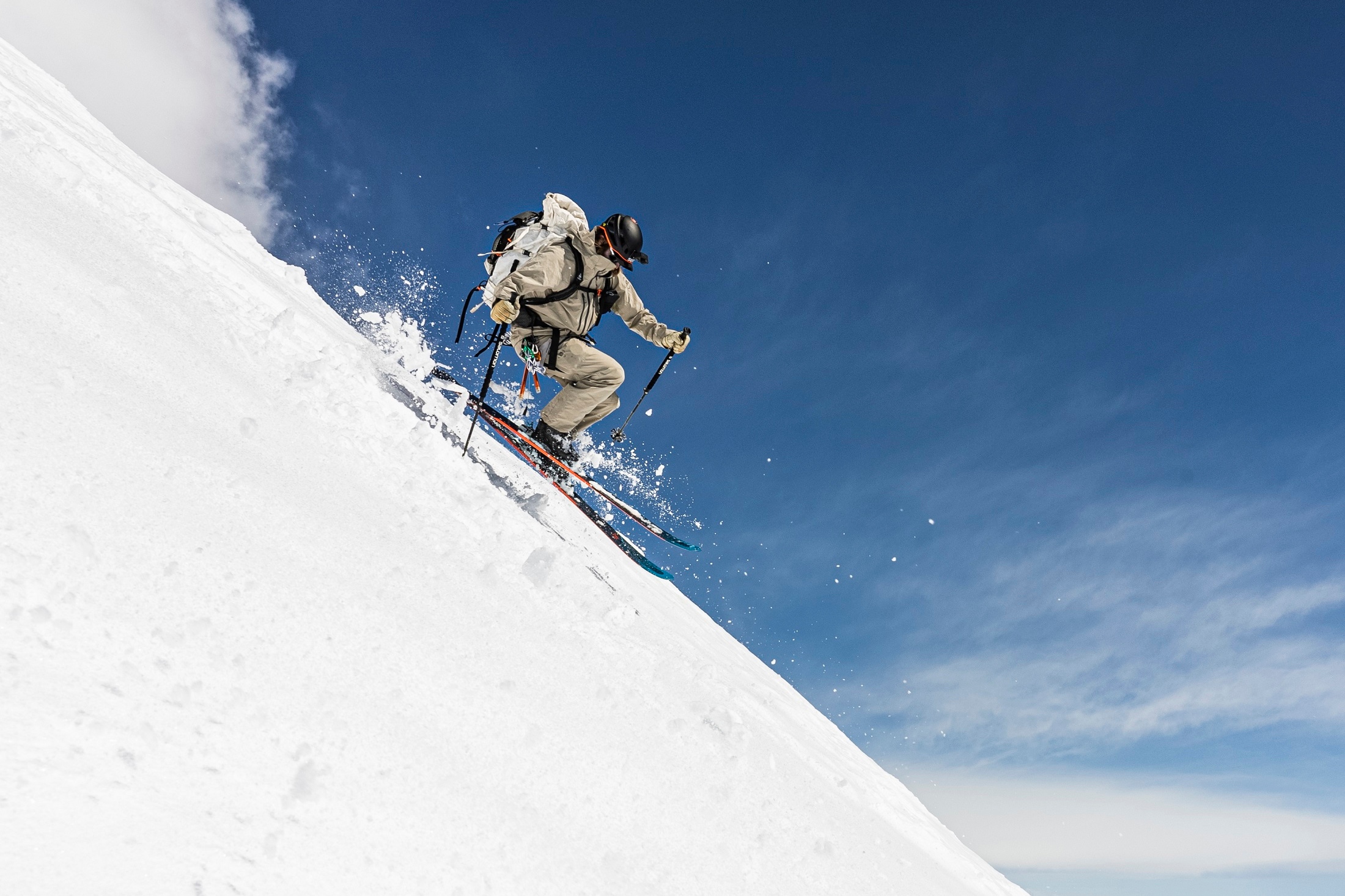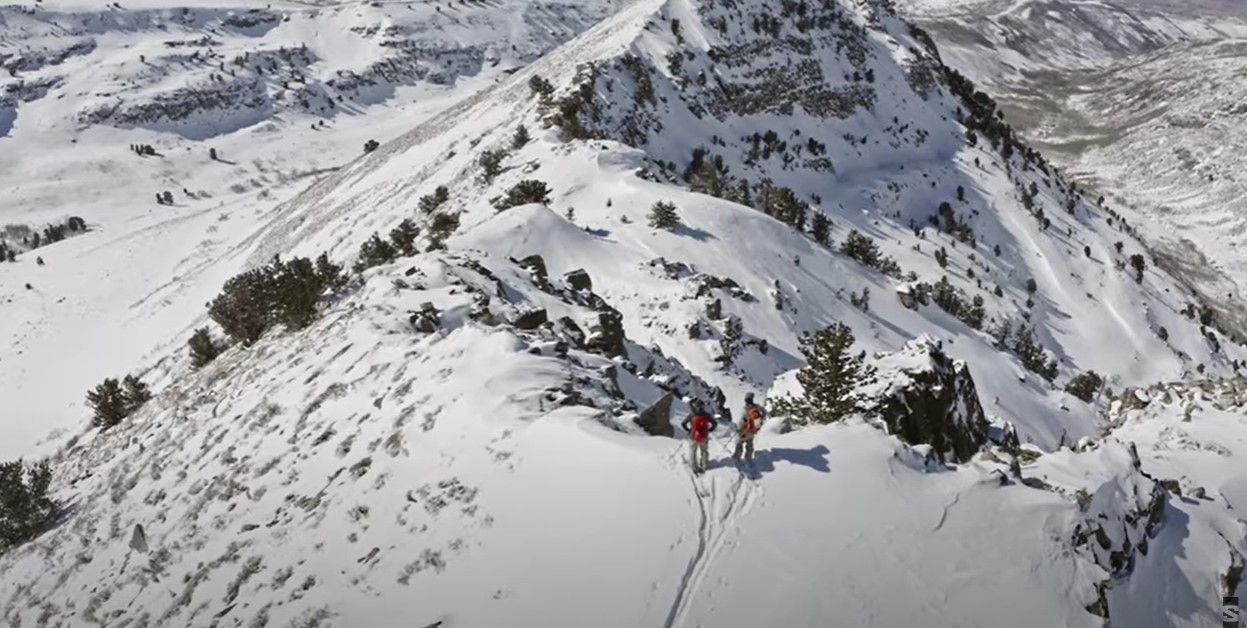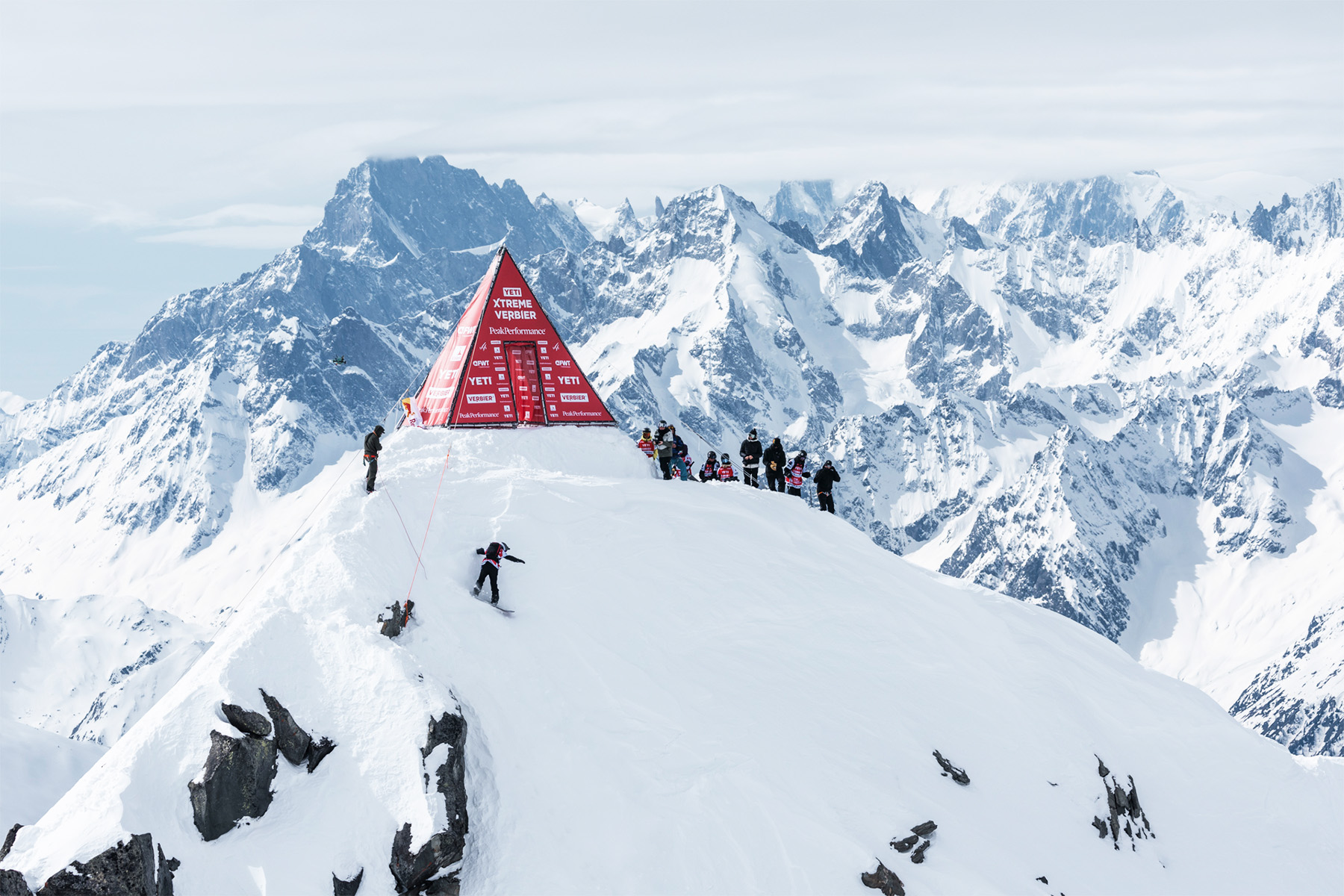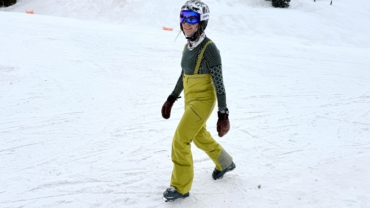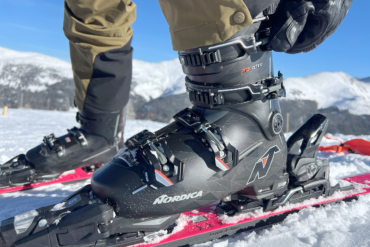Editor’s note: This article was originally published on ExplorersWeb.
Conor Phelan vividly remembers the moment that sparked his dream project. While driving back home to Reno, Nevada, Phelan saw a mountain that immediately captured his curiosity. It turned out to be Tule Peak, the tallest of the state’s Virginia Mountains. At 8,721 feet high, it offers 3,698 feet of prominence on the southern side, and — at that time — had plenty of snow.
Though Summit Post offers a brief description of hiking the mountain, Phelan couldn’t find any info about skiing it, which only heightened his interest. So he decided to see for himself what it had to offer.
“It was one of the coldest days I’ve ever had,” he said. “We did the South Face, which was barely edgeable, but there were magnificent views. Like every [Great] Basin peak, it’s just a sea of mountains out to the east. I saw all these lines and faces … it just calls to you.”
Thus began The Prominence Project, Phelan’s quest to ski down all 64 Nevada peaks with at least 3,000 feet (914 m) of prominence, which measures a summit’s elevation in relation to the surrounding terrain. A few weeks ago, he reached the halfway point after skiing down his 34th mountain in the state’s Great Basin.
He’s not doing it because the mountains offer the best powder or the most scenic photo for Instagram. Phelan just wants to explore the world with a pair of skis, and he thinks Nevada’s wild places deserve more attention.
“The Great Basin is a landscape that I’m in love with, and this is my love letter to the landscape,” he said. “It’s one of the most overlooked places in the country.”
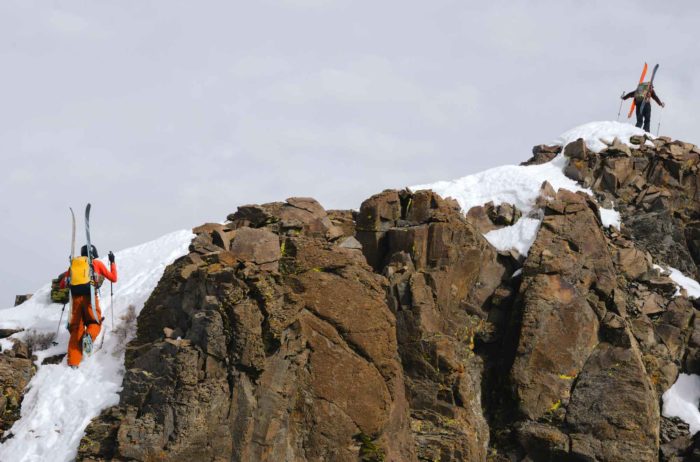
Backcountry Skiing Without the Beta
Phelan isn’t a professional skier. He doesn’t have endorsements or medals, though Moment Skis provides a new pair of planks every now and then.
But as he’s documented his journey online, including with YouTube videos, Phelan has attracted a small following among the backcountry skiing community.
“He’s not a professional, but his project has a grassroots following of people who appreciate the Type 2 fun that he and his friends undertake,” his brother Will Phelan said. “He’s not only the most modest, genuinely stoked person I know, but he also puts so much care into this project.”

Originally from a town near Rochester, New York, Conor Phelan learned skiing as a kid, then returned to the sport after moving to Montana in 2016. A few years later, he and his wife transplanted to Reno, and Phelan saw an untapped potential for backcountry skiing.
“People just fly over the basin or drive through it hauling their way to Tahoe or Utah,” he said. “There’s so much out there in this beautiful place that deserves to be explored.”
And unlike the well-trodden winter territory of Colorado or Utah, there’s scarce info to help skiers find their way. There isn’t a slew of websites full of information about the easiest ski routes to the summit, or what descents offer the most aesthetic lines. There aren’t even avalanche forecasts provided by mountain experts.
Phelan and his friends have figured everything out on their own.
“There are risks to backcountry skiing, but those can be mitigated by going to places that are well understood,” he said. “In most of these situations, my friends and I could be the first people to go out and ski these peaks.”

The Expedition Mentality
Phelan says his accomplices on these expeditions always express surprise at how much fun they have. As a result, he has become a minor ambassador for mountains that don’t often find their way into mainstream media.
“You’re not going to explore something brand new if you’re just finding it online,” he said. “If you do crave that totally unknown experience, you have to be willing to step out of your comfort zone.”
By necessity, that philosophy has guided The Prominence Project from the beginning. Many of these 64 peaks can go years without snow. It wasn’t until this winter, with its barrage of blizzards, that Phelan realized all of the mountains could be skied.

Unfortunately, two of the peaks also reside on land owned by the military, adding some additional difficulty to the project. So it might take several more seasons for Phelan to finally finish his goal.
But he doesn’t seem too worried about that. For Phelan, the unknowns are the main attraction. “It’s not about great snow. If that’s what you’re looking for, this probably isn’t for you,” he said. “Sometimes we do find great snow, sometimes not. It’s about the experience.”
